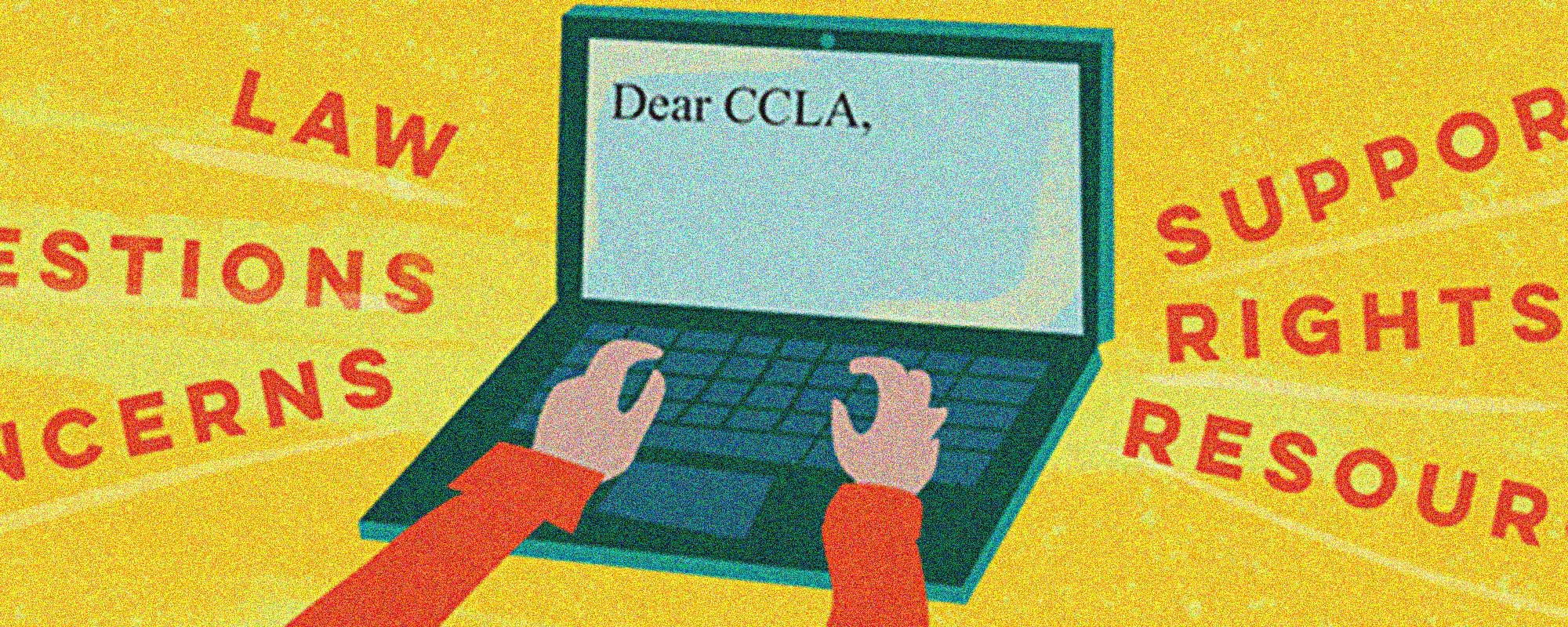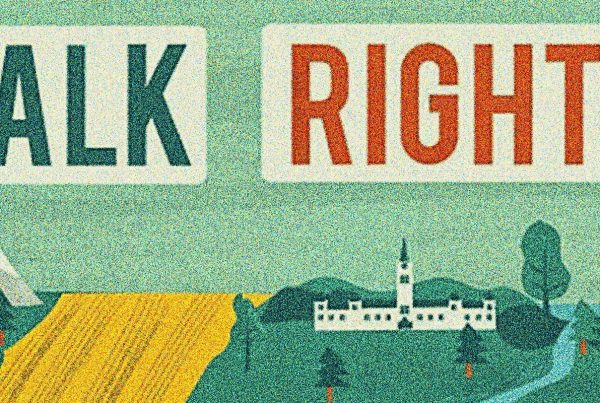Check out our growing collection of useful links and resources about immigration and citizenship issues, including related organizations, government resources, guides, and legal information. Is there something that should be on this list, but isn’t? Contribute at talkrights [at] ccla [dot] org.
INTERIM FEDERAL HEALTH PROGRAM:
- Interim Federal Health Program: The Interim Federal Health Program (IFHP) provides temporary health-care coverage for specific groups of people who aren’t covered under provincial, territorial, or private health-care programs. This includes resettled refugees, protected persons in Canada, refugee claimants, victims of human trafficking, and detainees. The IFHP covers many medical doctor services, hospital trips, and ambulance services. It also provides coverage for many prescription drugs and medical supplies like hearing aids. Some vision care and urgent dental care might also be covered.
- IFHP Changes. If you were covered by the IFHP before April 1, 2016, there is important information about changes to the program. Additional coverage will also begin on April 1st, 2017. This coverage will extend to refugees before they arrive in Canada. It will cover medical exams required for immigration, vaccinations, treatment for sickness in refugee camps, and medical support during the trip to Canada.
STUDIES AND REPORTS:
- Mental Health Commission of Canada: The Case for Diversity: Building the Case to Improve Mental Health Services for Immigrant, Refugee, Ethno-cultural and Racialized Populations (2016). Report which examines research on immigrant, refugee and racialized peoples’ mental health in Canada. The findings call for programs and services which are adapted to meet newcomers’ cultural and linguistic needs.
- Temporary Foreign Workers Program: Report of the Standing Committee on Human Resources, Skills and Social Development and the Status of Persons with Disabilities. House of Commons, Canada. September 2016 report on the Temporary Foreign worker program. Includes analyses of worker access to health care.
- Early Observations on the health of Syrian refugees in Canada. Study by the Public Health Agency of Canada. The study focuses on communicable diseases among Syrian refugees resettled in Canada from November 2015-February 2016. The two most immediate health care needs were immunizations and dental care, as well as respiratory infections during flu season. Longer-term health needs like diabetes, conflict injuries and mental health issues may not be immediately apparent. These needs will be identified as refugees integrate into local health care systems.
PROGRAMS, ORGANIZATIONS, AND INITIATIVES:
- In conjunction with the Case for Diversity report, the Mental Health Commission has compiled a list of programs, projects and initiatives that are working to develop mental health services which meet the needs of immigrant, refugee and racialized populations in Canada. Consult the list below to find an initiative in your province:
- NMC-CESI (Cultural Exchange & Support Initiative) is a student-led initiative at the University of Toronto. The program provides educational support and language resources for Syrian newcomer youth. Its volunteers help newcomers to communicate and adjust to life in Canada. It also connects Arabic speakers to refugee sponsorship groups.
- Together Project. Connects Government-Assisted Refugee (GAR) newcomers and Canadians for friendship and settlement support. Welcome groups support GAR newcomers access health care, search for housing, enroll in language classes, and more. The project aims to build healthy, integrated communities.
- Refuge Winnipeg. Non-profit organization that “brings together people of various traditions and identities in Winnipeg, committed to a common goal of compassion and a shared humanity.” The organization formed in 2014 to bring Syrian refugee families to Winnipeg.
- Canadian Collaboration for Immigrant and Refugee Health (CCIRH). Interdisciplinary collaboration between health care practitioners, researchers, immigrant community leaders and policy-makers. Provides comprehensive e-learning and policy development tools to help practitioners meet the health needs of new immigrants and refugees. Also runs Refugee Health Outreach Programs and programs on nutrition and mental health.
- Migrant Workers Alliance for Change. Coalition of migrant workers groups, activists and organizations that fight for migrant workers rights, including access to health care and worker’s compensation for injuries on the job.
- IAVGO Community Legal Clinic: Migrant and precarious workers. Assists migrant farmworkers in their Workplace Safety and Insurance Board cases. Have “Know Your Rights” resource for migrant workers on their website, including fact sheets on WSIB, Human Rights, and Employment Insurance (multiple languages).
- Lifeline Syria. Not-for-profit organization that assists sponsor groups to welcome and resettle Syrian refugees as permanent residents in the Greater Toronto Area.
- Canadian Centre for the Victims of Torture. Non-profit organization founded by Toronto-based doctors, lawyers and social service professionals. CCVT provides legal, medical and social services to help survivors to overcome the lasting effects of torture and war. The organization also has English classes, settlement services, counselling and support groups.
- Caring for Kids New to Canada. A list of health professionals and community services for immigrant and refugee youth across Canada. Compiled by the Canadian Paediatric Society.
- Canadian Mental Health Association. Promotes the mental health of all people across Canada, and supports those experiencing mental illness. CMHA branches across Canada provide mental health supports and services.
- Settlement.org. Information for newcomers to Ontario. Provides resources on immigration and citizenship, housing, health, employment, education and legal services. Gives easy-to-read answers to common questions and links to other organizations and services.
- Affiliation of Multicultural Societies and Service Agencies of BC (AMSSA). Association of community agencies who serve immigrants and newcomers across British Columbia.
- Canadian Council for Refugees. National non-profit umbrella organization that protects the rights of refugees and vulnerable migrants in Canada.
- Canadian Red Cross Migrant and Refugee Services. Supports newcomers to Canada through First Contact programs. Also provides SmartStart First Aid Training for those whose first language is not English or French.
- North American Refugee Health Conference. To be held June 16-18, 2017. Hosted by the University of Toronto Faculty of Medicine. The conference’s target audience includes health workers, refugees, public health specialists, and settlement workers.
RESOURCES:
- Arabic-language video explaining how to access health services in Canada. The video was created for Syrian refugees by the University of Toronto’s Dr. Mike Evans. Scroll to bottom for video:
- The settlement journey for refugees in Canada (Government of Canada). This page provides an overview of resources and considerations for refugees during the settlement process in Canada. It provides some tips for refugees before they arrive in Canada, as well as short, mid and long-term resources after their arrival.
- Mental Illness, Criminal Offences, & Deportation: Tips for front-line workers. Handbook for front-line workers and advocates. Contains information and resources for those working with people who are not Canadian citizens, but have been charged with a crime in Canada and may have a mental illness. Published by the Schizophrenia Society of Ontario and Community Legal Education Ontario (CLEO).
- Refugee HealthLine (Ontario). 1-866-286-4770. Connects refugees with health services. Call the HealthLine to register for help being connected with a health service provider. Not an emergency or crisis line.
- Alone in Canada: 21 ways to make it better. A self-help guide for single newcomers. An easy-to-read booklet with tips on learning to live in a new culture, making friends, understanding Canadian customs, and coping with stress. This is also available in more than 15 languages on the Ontario Settlement.org website.
- What is Posttraumatic Stress Disorder (PTSD)? Information about the signs and symptoms of PTSD and guidance on where to find help, treatment and support. From the Centre for Addiction and Mental Health
About the Canadian Civil Liberties Association
The CCLA is an independent, non-profit organization with supporters from across the country. Founded in 1964, the CCLA is a national human rights organization committed to defending the rights, dignity, safety, and freedoms of all people in Canada.
For the Media
For further comments, please contact us at media@ccla.org.




